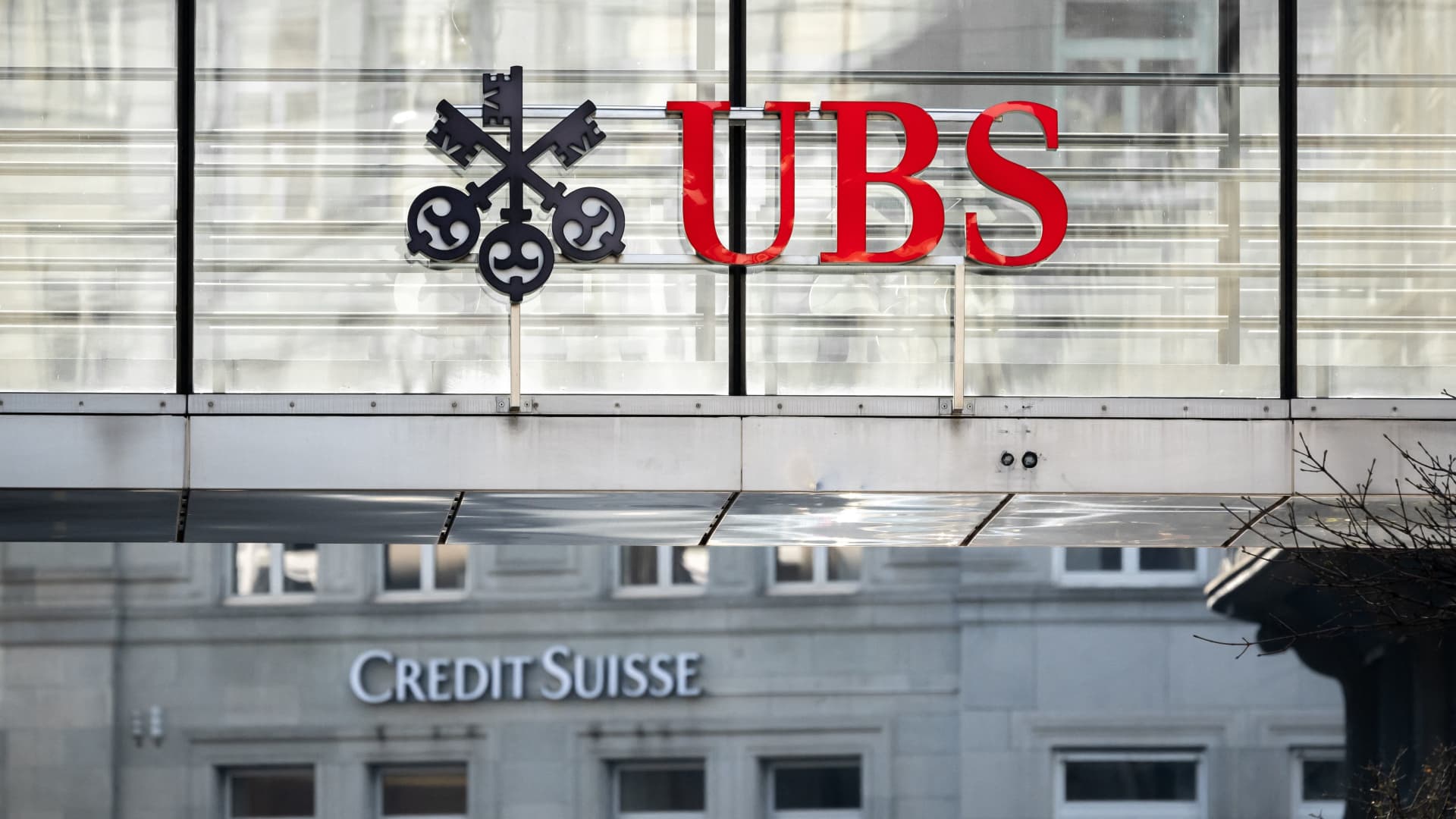UBS expects $17 billion hit from Credit Suisse rescue, flags hasty due diligence

Swiss authorities brokered the controversial emergency rescue of Credit Suisse by UBS for 3 billion Swiss francs ($3.37 billion) over the course of a weekend in March.
Fabrice Coffrini | AFP | Getty Images
UBS estimates a financial hit of around $17 billion from its emergency takeover of Credit Suisse, according to a regulatory filing, and said the rushed deal may have affected its due diligence.
In a new filing with the U.S. Securities and Exchange Commission (SEC) late Tuesday night, the Swiss banking giant flagged a total negative impact of around $13 billion in fair value adjustments of the new combined entity’s assets and liabilities, along with a potential $4 billion hit from litigation and regulatory costs.
However, UBS also expects to offset this by booking a one-off $34.8 billion gain from so-called “negative goodwill,” which refers to the acquisition of assets at a much lower cost than their true worth.
The bank’s emergency acquisition of its stricken domestic rival for 3 billion Swiss francs ($3.4 billion) was brokered by Swiss authorities over the course of a weekend in March, with Credit Suisse teetering on the brink of collapse amid massive customer deposit withdrawals and a plummeting share price.
In the amended F-4 filing, UBS also highlighted that the short time frame under which it was forced to conduct due diligence may have affected its ability to “fully evaluate Credit Suisse’s assets and liabilities” prior to the takeover.
Swiss governmental authorities approached UBS on March 15 while considering whether to initiate a sale of Credit Suisse in order to “calm markets and avoid the possibility of contagion in the financial system,” the filing revealed. The bank had until March 19 to conduct its due diligence and return with a decision.

“If the circumstances of the due diligence affected UBS Group AG’s ability to thoroughly consider Credit Suisse’s liabilities and weaknesses, it is possible that UBS Group AG will have agreed to a rescue that is considerably more difficult and risky than it had contemplated,” UBS said in the Risk Factors section of the filing.
Though this is highlighted as a potential risk, UBS CEO Sergio Ermotti told CNBC last month that the Credit Suisse deal was not risky and would create long-term benefits.
The most controversial aspect of the deal was regulator FINMA’s decision to wipe out around $17 billion of Credit Suisse’s additional tier-one (AT1) bonds before shareholdings, defying the conventional order of write downs and resulting in legal action from AT1 bondholders.
Tuesday’s filing showed the UBS Strategy Committee began evaluating Credit Suisse in October 2022 as its rival’s financial situation worsened. The long-struggling lender experienced massive net asset outflows toward the end of 2022 on the back of liquidity concerns.
The UBS Strategy Committee concluded in February that an acquisition of Credit Suisse was “not desirable,” and the bank continued to conduct analysis of the financial and legal implications of such a deal in case the situation deteriorated to the point that Swiss authorities would ask UBS to step in.
UBS last week announced that Credit Suisse CEO Ulrich Koerner will join the executive board of the new combined entity once the deal legally closes, which is expected within the next few weeks.
The group will operate as an “integrated banking group” with Credit Suisse retaining its brand independence for the foreseeable future, as UBS pursues a phased integration.







